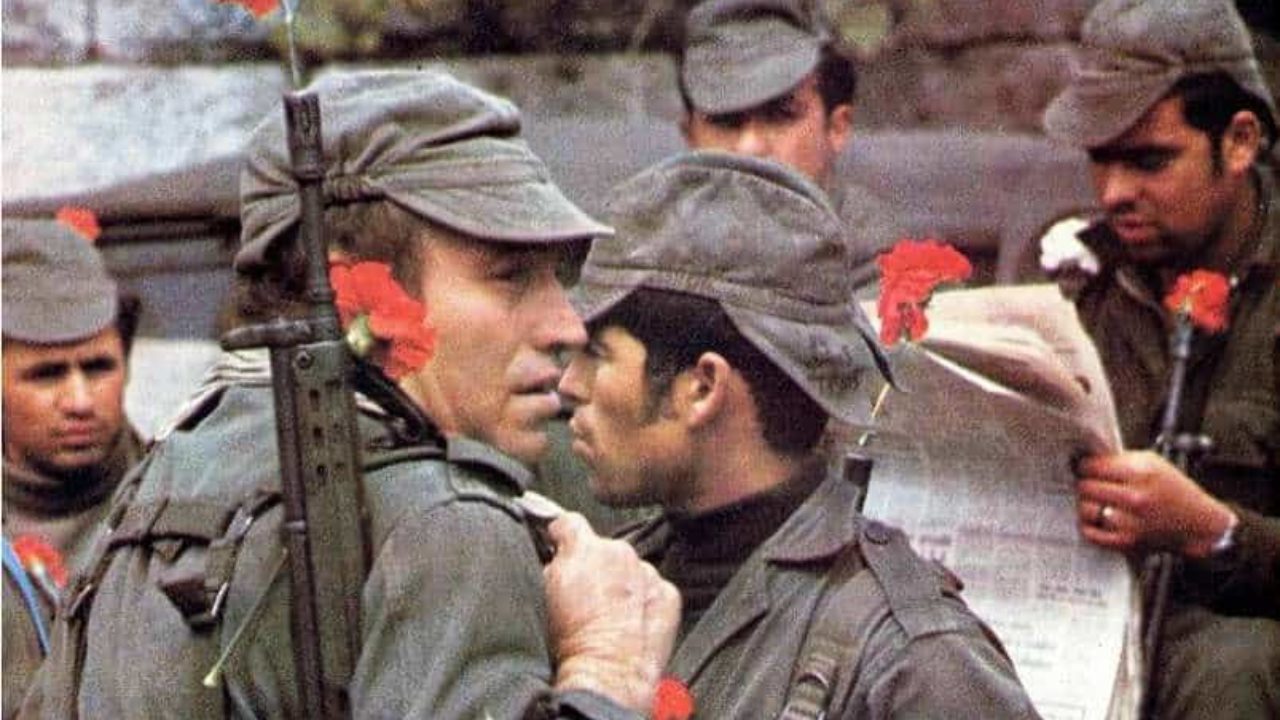On this day in 1974, the Carnation Revolution took place when a bloodless, anti-colonial military coup in Lisbon overthrew the Portuguese Estado Novo regime which had been waging unpopular wars to maintain its African colonies.
The revolution began as a coup organized by the Armed Forces Movement (MFA), composed of military officers who opposed the regime, but it was soon coupled with an unanticipated, mass civil resistance campaign. The name "Carnation Revolution" comes from the fact that carnations were placed in the muzzles of guns and on the soldiers' uniforms.
The revolution toppled the Estado Novo government and ended the unpopular Portuguese Colonial War (leading to independence for Guinea-Bissau, Cape Verde, Angola, among others), also starting a political process that would result in a more democratic Portugal.
After the coup, power was held by the National Salvation Junta (a military junta), and Portugal experienced a period of political turmoil as conflicting communist, socialist, and right-wing forces competed with each other for power.
Portugal's first free election took place on the one-year anniversary of the Carnation Revolution with the purpose of writing a new constitution. Another election was held in 1976 and the first constitutional government, led by center-left socialist Mário Soares, took office.
